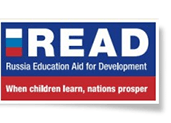On April 25, 2018, a group of Kazakh parents whose children were attending the Bayannuur School joined a consultation meeting with the project team of Mongolia’s Education Quality and Reform Project (EQRP) to share their thoughts on their children’s learning needs and experiences at school. The school is located in a rural district near a beautiful freshwater lake, in the far east part of the Bayan-Ulgii (BU) province of western Mongolia. Like most districts in the BU province, the Bayannuur district is
predominantly inhabited by the Kazakhs—Mongolia’s most populous ethnic minority. One mother from a nomadic family, who traveled 60 kilometers from her remote village to attend the consultation meeting, called for adequate support for children learning the Mongolian language: “Our children need more support for both building foundations in their native Kazakh language and improving their capacity in Mongolian as a second language. Although they learn Mongolian at school from early grades, they still find it hard to pick up and understand the language. After all, it’s not our mother tongue, and our children are at a disadvantage in the learning environment.” As other parents listened to the mother, they nodded to each other in agreement.
Mongolia is committed to improving the quality of basic education through conducting the assessment of student performance and understanding learning gaps in early grades and strengthening the quality of both summative and formative assessments, The Bank-supported EQRP, which has been implemented by Mongolia’s Ministry of Education, Culture, Sciences and Sports (MECSS) since 2014, aims to improve the quality of education for primary school children, with a special emphasis on enhancing native language and mathematical skills, and strengthening school-level planning. One of EQRP’s key components supports the national rollout of the early grade reading and math assessments (EGRA and EGMA) of students in grades 1 and 2. Coupled with the training of teachers and on-site monitoring on their appropriate use, these assessments are designed to help Mongolia establish the student learning outcome baselines and monitor their progress in reading and mathematics. The first rounds of EGRA and EGMA were conducted in April and May 2017 in randomly-selected public-school classrooms in Ulaanbaatar and 21 provinces across the country. In total, 1,386 first-graders and 1,380 second-graders participated in these assessments.
The ultimate usefulness of student assessment data such as EGRA and EGMA depends on whether it is properly analyzed, interpreted, and disseminated to policymakers, education authorities, school administrators, teachers, and parents. With the support of a grant from the Russia Education Aid for Development (READ) 2 Trust Fund, Mongolia is working to enhance stakeholder capacity to use assessment data (such as the EGRA and EGMA collected under EQRP) to improve teaching and learning. Supported by the READ 2 Trust Fund Grant, the analysis of the first rounds of the EGRA and EGMA conducted in 2017 revealed certain learning gaps between children from ethnic minority backgrounds and their Mongolian peers as well as highlighted the overall underperformance of the BU province. In particular, Kazakh students performed worse than their non-Kazakh peers, with an up to 5% gap in EGRA subtest scores and an up to 10% gap in EGMA subtest scores. The analysis also showed that these learning gaps tended to widen as children advanced from grade 1 to grade 2. The ethnic and regional differences in scores corroborated the findings from other recently conducted studies and assessments of other cohorts. For example, five-year-old ethnic minority children who were enrolled in kindergarten lagged behind in cognitive, language, and socioemotional skills and in the grade 5 national assessment, students in the BU province (both ethnic Mongolian and minority students) fell behind their peers in other provinces in all subjects.







